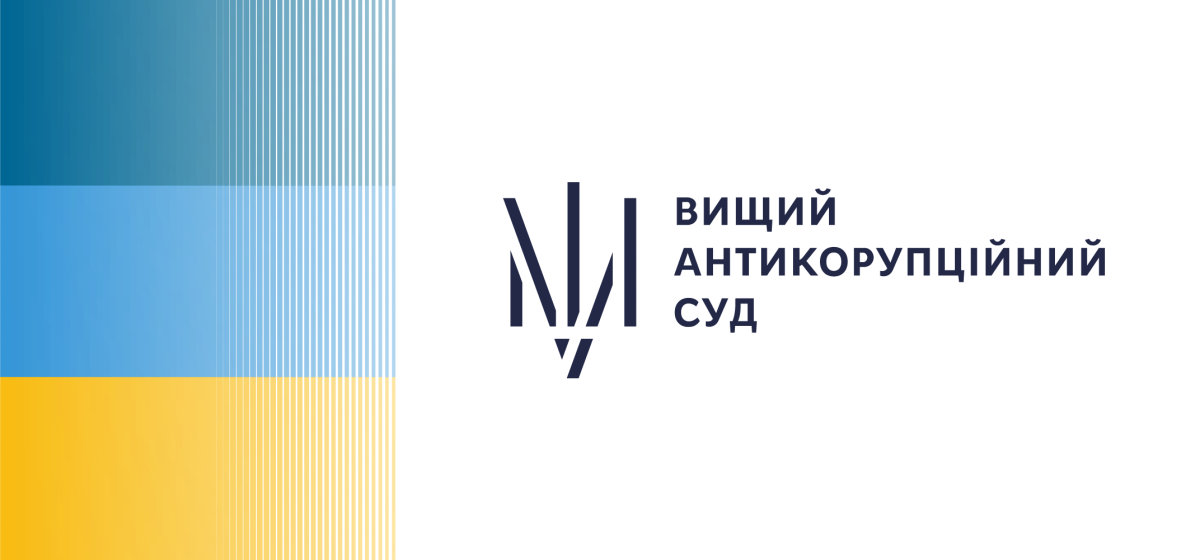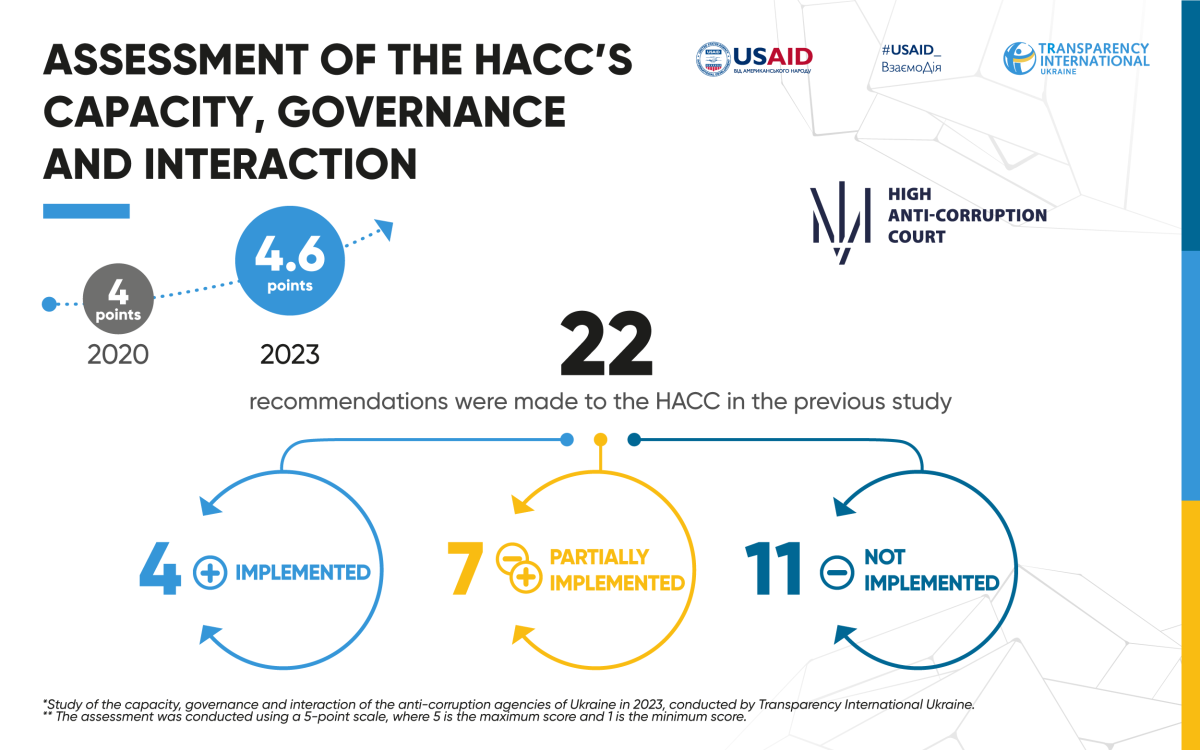

The performance of the High Anti-Corruption Court was assessed at 4.6 points out of 5. This is the best result among all bodies of the anti-corruption infrastructure of Ukraine.
This was published by Transparency International Ukraine in the Study of Capacity, Governance, and Interaction of Agencies That Make Up Ukraine’s Anti-Corruption Infrastructure 2023, conducted with the support of the USAID project “Supporting Anti-Corruption Champion Institutions” (SACCI).
The HACC’s activity was assessed at 4.6 points (compared to 4.0 in 2020). The Court made progress of 0.6 points, which is one of the most noticeable advances among anti-corruption bodies. Experts believe that it can be considered exemplary in Ukraine’s judicial system.
Experts believe that HACC can be considered exemplary in Ukraine’s judicial system.
The High Anti-Corruption Court went into operation in 2019 as a specialized court. Its jurisdiction includes corruption or corruption-related offenses, as well as cases concerning recognition of assets as unexplained wealth and their collection into state revenue. In 2022, the jurisdiction of the HACC was expanded: it now includes cases regarding confiscation of Russian assets in administrative proceedings.
“The synergy of efforts of state and non-state actors contributed to the HACC achieving this result. Here, we can note both the Court’s openness regarding its activities, and the professionalism of the judges and employees of the Court apparatus. At the same time, the issues of resources that lay the foundation for the work of the court remain relevant. For example, the premises where the HACC AC works, as well as funding of the Court’s work overall” , says TI Ukraine’s legal advisor Pavlo Demchuk.
In the previous study, we provided the HACC with 22 recommendations, of which 4 were completely implemented, 7 partially implemented, and 11 recommendations — not implemented at all. This year, TI Ukraine provided 15 recommendations, of which 5 are priority:
- Expand the HACC judiciary, proportionally increasing the court’s apparatus, first of all, patronage service;
- Develop and pass the legislative framework to prevent participants in criminal proceedings from abusing their procedural rights;
- Adopt the relevant legislative framework to allow HACC judges to consider a certain category of cases single-handedly;
- Ensure adequate funding for the HACC’s current needs, as well as competitive salaries and judges’ remuneration;
- Allocate adequate premises to house HACC AC, with regard to the increase in the Court’s staff and judicial corps, hand it over under permanent management of the Court.
The HACC obtained the best score at 4.6 points, while the ARMA had the worst result 3.4 points. Of the 103 recommendations made in the 2020 study, the agencies implemented 23, partially implemented 36, and did not implement 41.
The study covers the period from August 2020 to June 2023.
Anti-corruption agencies, namely the NACP, the NABU, the SAPO, the ARMA, and the HACC, were assessed on a scale from 1 to 5.
The research methodology has been developed taking into account the main approaches of the National Integrity System (NIS), developed and implemented by the international anti-corruption network Transparency International.
The draft study was provided to anti-corruption infrastructure agencies for preliminary perusal, comments and corrections.
This research was made possible by the support of the American people through the United States Agency for International Development (USAID) within the SACCI project. The contents of this publication are the sole responsibility of Transparency International Ukraine and do not necessarily reflect the views of USAID or the United States Government.
For reference: The Support to Anti-Corruption Champion Institutions (SACCI) Program in Ukraine is a six-year USAID initiative that has an objective to assist Ukraine to reduce corruption and increase the accountability and transparency of governance in Ukraine. The program seeks to empower key government institutions to fight corruption, build public support for and engagement in anti-corruption efforts, and reduce citizen tolerance to corruption, as well as ensure maximum transparency and accountability of Ukraine’s post-war recovery and reconstruction.
The issues of resources that lay the foundation for the work of the court remain relevant. For example, the premises where the HACC AC works, as well as funding of the Court’s work overall.







